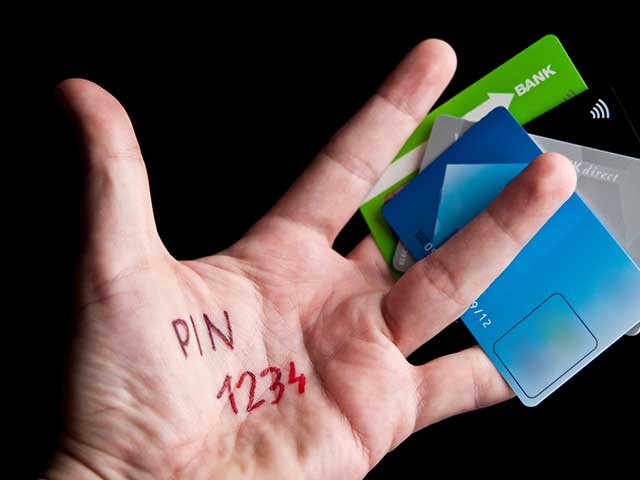Easy to do, nice of you to do... (B1)
Adjectives with infinitive (335)
Přídavná jména s infinitivem
Přídavná jména s infinitivem – procvičování:
Na Landigo máme další související lekce:
It was cheap to rent scooters in Thailand.
|
It was cheap to rent them.
|
|
They were cheap to rent.
|


Běžné konstrukce přídavného jména (impossible, nice, happy...) s TO infinitivem:
- It is ... to do something:
It's impossible to understand your accent.
- Something is ... to do:
Your accent is impossible to understand.
- It is ... of somebody to do:
It's nice of you to help me.
- Be ... to do:
We'll be happy to see you soon.
- The first/second/last one to do:
The first person to call will win a prize.
- Somebody is likely to do:
You're not likely to be the winner.








it is easy to do something
something is easy to do
S přídavnými jmény typu EASY, DIFFICULT, HARD, (IM)POSSIBLE; EXPENSIVE, CHEAP; SAFE, DANGEROUS; IMPORTANT, používáme konstrukci IT IS ... TO DO SOMETHING:
|
It's easy to learn English.
|
Je snadné naučit se anglicky. |
|
It isn't safe to eat the fish.
|
Není bezpečné jíst tu rybu. |
|
Was it cheap to hire a guide?
|
Bylo levné najmout si průvodce? |








Můžeme také použít SOMETHING IS ... TO DO:
|
English is easy to learn.
|
Angličtina se učí snadno. |
|
The fish isn't safe to eat.
|
Ryba není bezpečná k jídlu. |
|
Guides are cheap to hire.
|
Průvodce si můžete najmout levně. |
Neříkáme: English is easy to learn IT.; Guides are cheap to hire THEM.








It was really difficult to understand Naomi a year ago. She is much easier to understand now.
|
It was difficult to understand her.
|
|
She is easier to understand now.
|


it's nice of somebody to do
Pokud vyjadřujeme, co si myslíme o něčím chování, použijeme IT'S ... OF SOMEBODY TO DO:
|
It isn't nice of you to talk about your girlfriend like this.
|
|
It's kind of Jessica to offer me the loan.
|
|
It was careless of them to leave the bag on the beach without keeping an eye on it.
|
Stejně lze použít např. také: CLEVER, STUPID, SILLY, MEAN, CRUEL, UNFAIR, CONSIDERATE nebo THOUGHTFUL.












It was silly of Simon to break up with Katherine when he's still in love with her.
|
It was silly of him to break up.
|
|
It was careless of him to do that.
|


of somebody = od někoho
for somebody = pro někoho
Porovnejte OF SOMEBODY (od někoho) a FOR SOMEBODY (pro někoho):
|
It'd be nice of you to show Denise around.
|
Bylo by od tebe hezké, kdybys Denise provedl. |
|
It'd be nice for you to have somebody here to show you around.
|
Bylo by hezké, kdybys tu měla někoho, kdo tě provede. |
It wasn't possible for anybody to repair, but it was kind of you to give it a try anyways.
| Pro někoho: |
possible for anybody to repair
|
| Od někoho: |
kind of you to try
|


It was considerate of Daniel to help me with my luggage. He's such a gentleman!
| Od někoho: |
|
considerate from of him
|


too hard to pass
easy enough to pass
S přídavným jménem s infinitivem se někdy používá TOO (příliš) a ENOUGH (dostatečně):
|
Was the exam too hard for you to pass?
|
|
Luckily, it was easy enough to pass.
|












Unfortunately, the flat is too expensive for us to afford.
|
too expensive to afford
|
|
not affordable enough to buy
|


be happy to do something
Pomocí přídavných jmen, která vyjadřují nějaký pocit nebo emoci – HAPPY, SAD, SORRY, SURPRISED, AFRAID... + TO infinitivu, můžeme popsat, jak někdo na něco reaguje:
|
After such a long time we were so happy to see our grandchildren.
|
|
I'm sorry to hear that Daniel passed away.
|
|
Were you surprised to get promoted, or was it something you expected?
|








Dad was pleased to see that the whole family was having a good time.
|
He was pleased to see that.
|
|
He was happy to spend time with them.
|


I'm sad to leave my hometown. At the same time, I'm excited to start a new life in Canada.
|
I'm sad to leave now.
|
|
I'm excited to start a new life.
|


the first one to do something
Pokud vyjadřujeme, že někdo přišel jako první, něco se stalo jako poslední apod., použijeme THE FIRST/SECOND/NEXT/LAST/ONLY... + TO infinitiv:
|
Was he the first person to sail around the world?
|
|
Who were the last guests to enter the house? They left the door wide open!
|
|
I was the only girl to sleep in a tent.
|








You're not the first or the last person to think I'm a little weird.
|
the first person to think that
|
|
the last person to mention that
|


somebody is likely to do something
something is likely to happen
S přídavnými jmény (UN)LIKELY, (UN)SURE, (UN)CERTAIN, BOUND, která popisují, že něco je nebo není pravděpodobné, můžeme použít konstrukci s TO infinitivem:
|
I'm unlikely to be in Europe for your birthday. (= It's unlikely that I'll be...)
|
|
The German tennis player is certain to win. (= It's certain that he'll...)
|
|
You should wear a cap tomorrow. It's likely to get colder and snow. (= It's likely that it will...)
|








My friends are bound to be at the bus stop. They must be already waiting for us.
|
They're bound to be there.
|
|
They're very likely to be there.
|


Not to do, not to like...
Infinitiv v záporu tvoříme tak, že dáme NOT před TO:
|
Your puppy is hard not to like. It's so cute!
|
|
It was mean of you not to invite Lee to the party.
|








It was so selfish of you not to share the chocolate!
|
selfish of you not to share it
|
|
nice of you not to eat it all
|


It's worth doing, no use trying...
Pozor, s některými přídavnými jmény (busy, worth...) se používá -ING, ne infinitiv:
|
Are you still busy packing for holiday?
|
|
I live just around the corner so it's not worth driving there.
|
|
It's no good to persuade Abby, she won't change her mind.
|
|
There's no use trying to argue with Aaron. He's too stubborn.
|
Nikoliv: busy to pack, worth to drive
Více o výrazech s -ING v lekci: Go hiking, be busy doing...








Doporučujeme si procvičit přídavná jména s infinitivem (adjectives with infinitive) v našich cvičeních.
